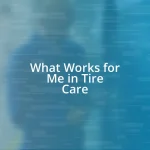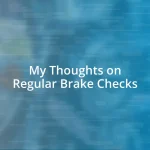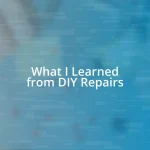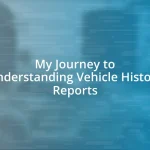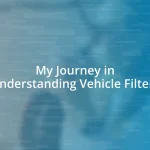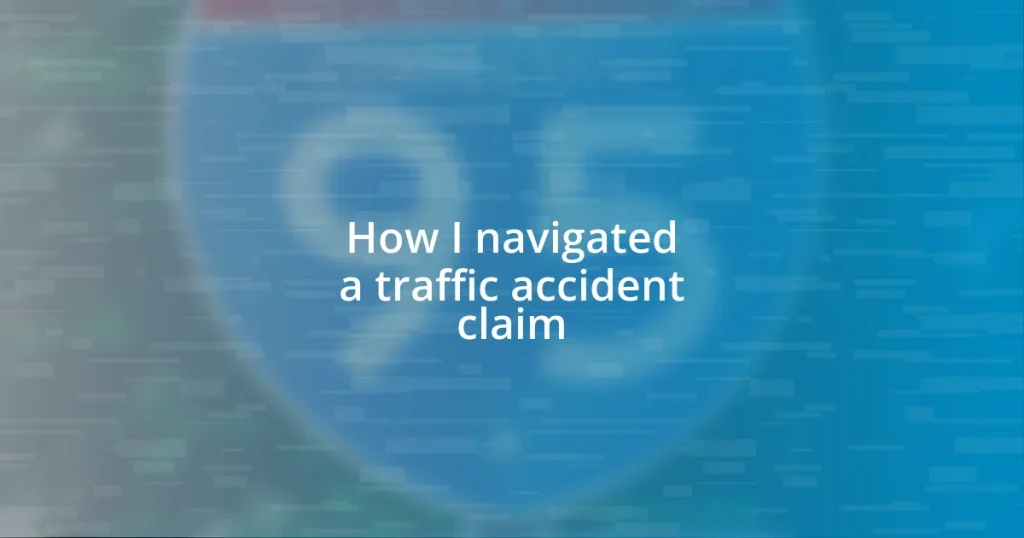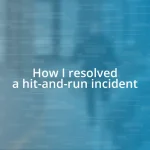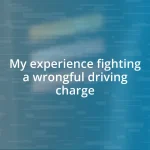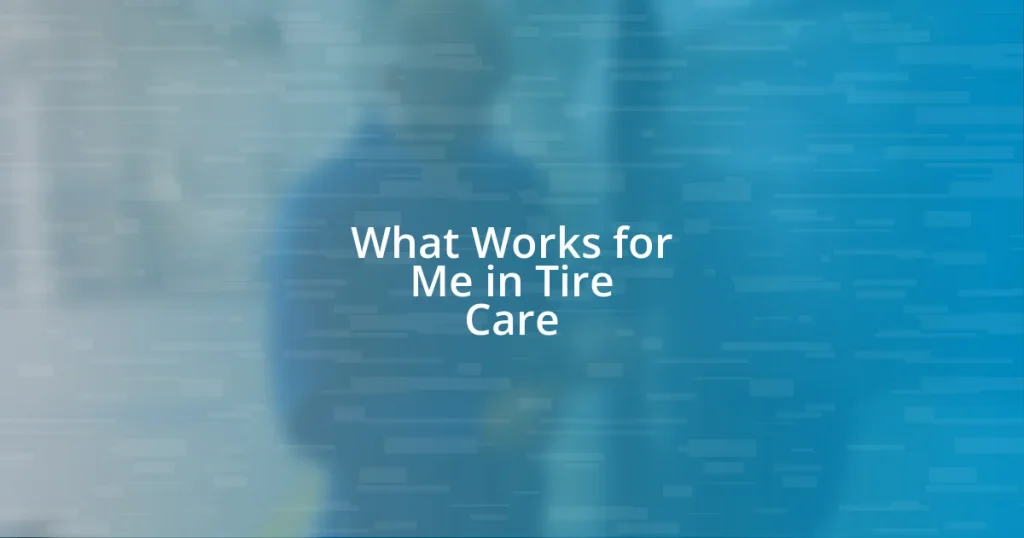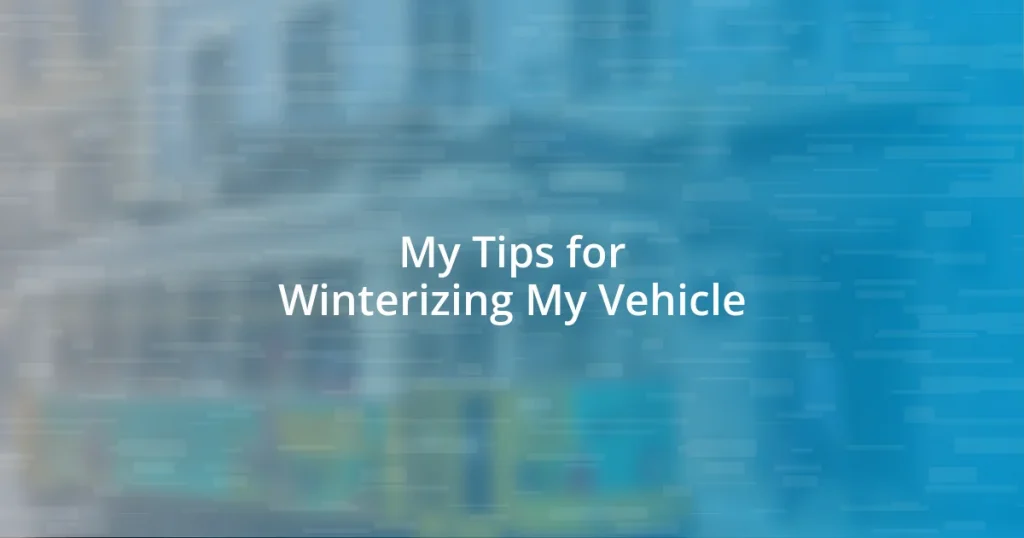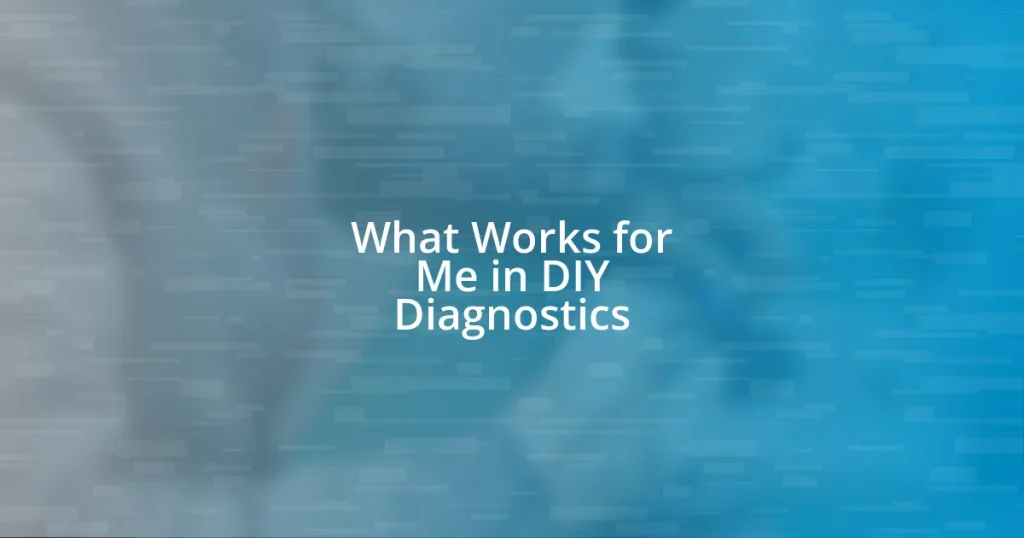Key takeaways:
- Thorough documentation, including police reports and photographs, is essential for a strong accident claim.
- Effective communication with insurance companies is crucial; preparation, rapport-building, and persistence can lead to better outcomes.
- Researching claim values and being clear in negotiations increases confidence and improves the chances of a favorable settlement.
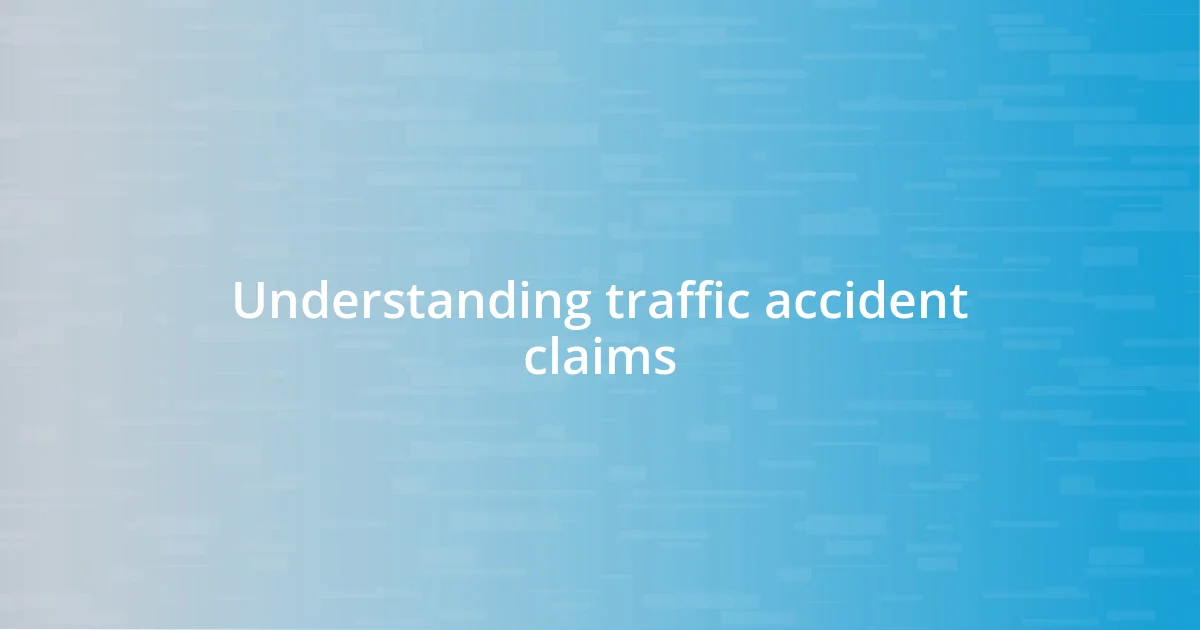
Understanding traffic accident claims
When it comes to traffic accident claims, understanding the ins and outs can feel overwhelming. I remember my first claim vividly; I found myself knee-deep in insurance jargon and legal terms that seemed designed to confuse rather than help. Have you ever wondered why some claims are processed quickly while others drag on? Often, it boils down to documenting the accident properly and knowing what evidence to gather.
The details of your accident, like police reports, witness statements, and photographs, play a crucial role. I learned this the hard way when I neglected to take pictures at the scene. That small oversight led to complications later on, making me realize how vital it is to exhaustively document everything. It’s almost like you’re building a case as if it were a puzzle; every piece counts to give you a full picture of what happened.
Navigating your rights and responsibilities can feel like venturing into unknown territory. Have you ever felt lost in that maze? I certainly did, especially when trying to understand who was liable. I found that seeking clarity on these issues not only eased my anxiety but also empowered me to advocate for myself effectively. Ultimately, becoming well-versed in the claims process helped not only in getting the compensation I deserved, but also in regaining my sense of control after a particularly unsettling experience.
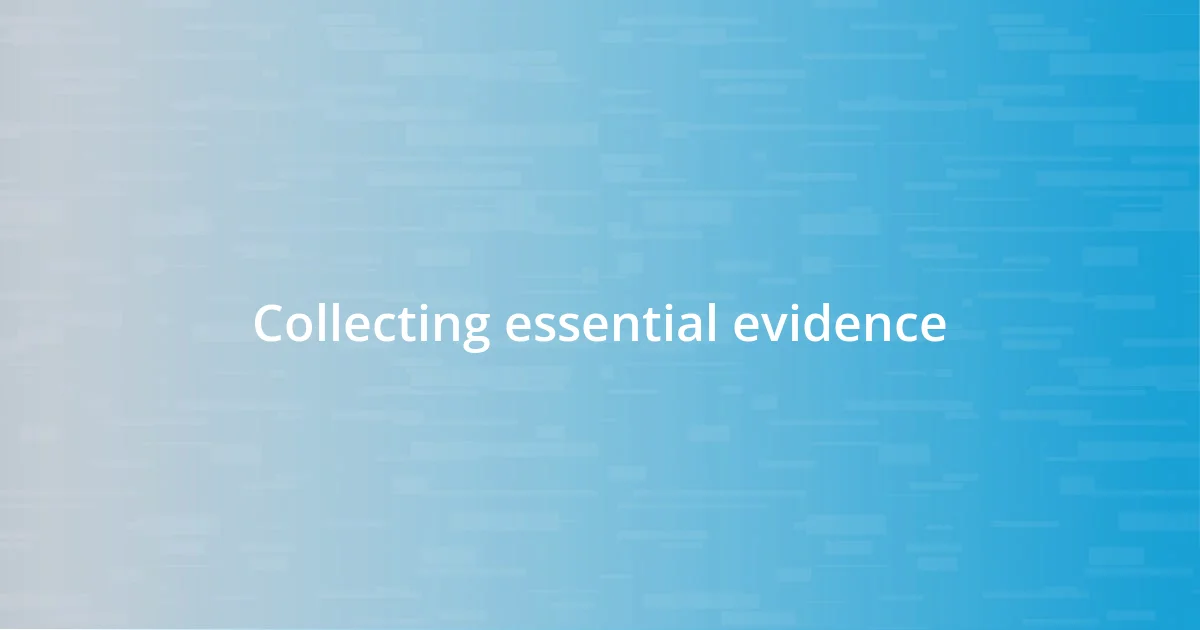
Collecting essential evidence
Collecting evidence after a traffic accident is vital for ensuring your claim is strong. I still remember how nervous I felt at the scene, fumbling to gather the right information. It’s easy to overlook crucial details when your adrenaline is coursing through your veins. However, that initial rush of emotions shouldn’t eclipse the need to document what happened thoroughly.
Here’s a quick checklist of what to collect:
- Police Report: Always request a copy as it holds official details of the incident.
- Photographs: Take clear pictures of the scene, vehicles involved, and any visible injuries.
- Witness Statements: Gather contact information from anyone who saw the accident; their testimony can be invaluable.
- Insurance Information: Note down the insurance details of all parties involved.
- Personal Notes: Record your immediate thoughts and feelings about the accident; they can help later on.
In the chaos post-accident, I realized the importance of having everything documented. When I finally sat down to organize my thoughts, those notes served as an emotional release as well as a practical guide for my claim. It felt empowering to turn a terrifying moment into something actionable.
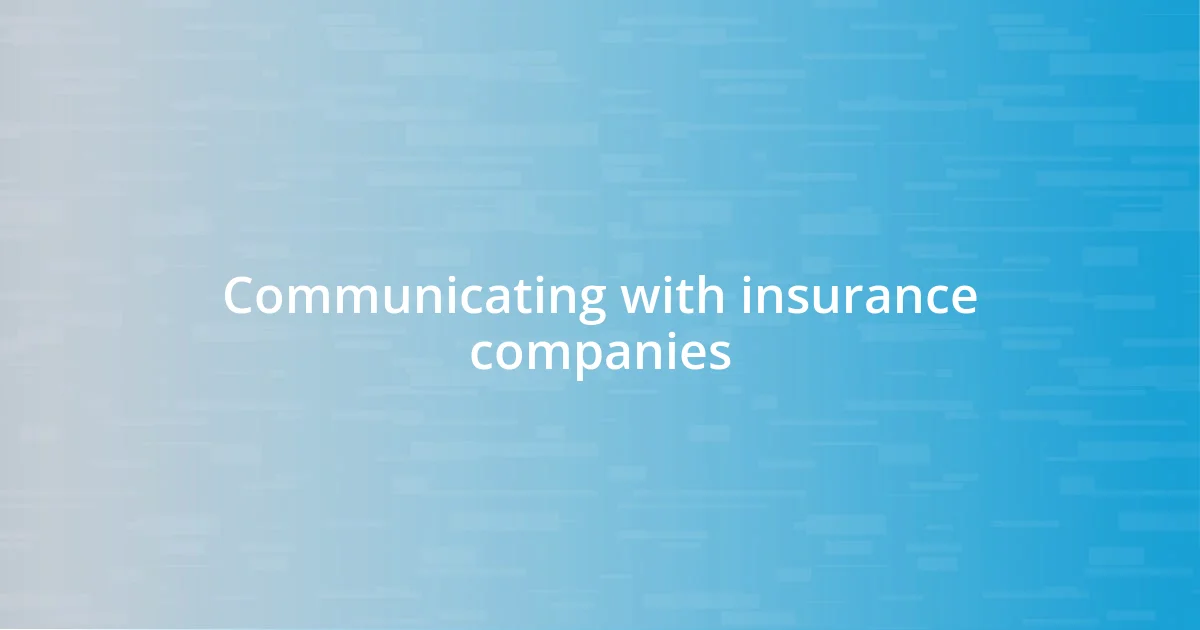
Communicating with insurance companies
Communicating with insurance companies can be a daunting task, especially when you’re already dealing with the aftermath of an accident. I remember my first call vividly. I called my insurance company trying to explain the details of my accident, and it felt like I was talking to a robot. All I wanted was clarity, but instead, I was met with a barrage of questions that only added to my frustration. I quickly learned that preparation is key. Having all my documentation at hand made it easier to answer their questions and keep the conversation on track.
As I navigated the process, I found that establishing a rapport with my claims adjuster made a world of difference. It’s surprising how a little friendliness can turn an uncomfortable call into a productive conversation. By engaging in small talk, I was able to ease tensions. I remember sharing a laugh about accidentally calling in the wrong sort of claim, and that simple connection led to him being more helpful and flexible with my situation. Have you ever felt like a friendly conversation turned the tide in a stressful interaction? It truly can.
That said, it’s essential to remain persistent and assertive. During my claims process, I had to follow up multiple times to get updates. Initially, I hesitated because I didn’t want to be seen as a nuisance. But, I soon realized that being proactive was my responsibility. Balancing politeness with persistence is key. By the end of my experience, I felt empowered. I had learned to communicate effectively, ultimately leading to a successful claim resolution.
| Tip | Details |
|---|---|
| Preparation | Have all documentation ready; it makes communication smoother. |
| Build Rapport | A friendly demeanor can lead to better assistance from claims adjusters. |
| Be Persistent | Regular follow-ups show commitment and keep your claim on their radar. |
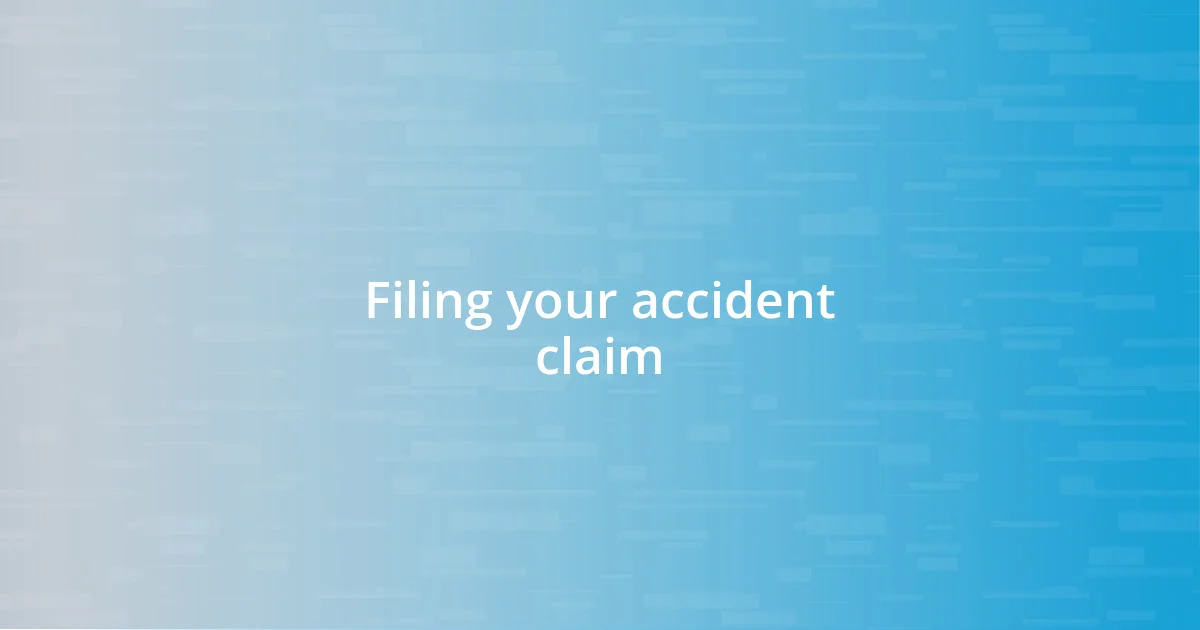
Filing your accident claim
Filing your accident claim is a crucial step in the aftermath of a traffic accident. I remember sitting at my kitchen table, papers spread out in front of me, feeling a mix of determination and anxiety. It’s important to know that each insurance company has its own processes, so thoroughly reading up on your specific requirements can save you a lot of headaches later. Have you ever felt overwhelmed by a task that seems so complex? I certainly did at that moment.
Once you submit your claim, the waiting can feel agonizing. There were days when I constantly checked my email and phone, eager for any updates. I learned the hard way to keep a record of all communications. Jotting down who I spoke to, what was discussed, and their promises gave me both clarity and a sense of control during the uncertainty. Isn’t it frustrating when you feel like things are happening outside your control? Taking notes helped me regain that grip.
As my claim progressed, I also found that being organized was a game changer. I created a folder that held all my documents, including the claim number, accident details, and correspondence with my insurance company. The sense of accomplishment I felt every time I added something to that folder was immense. It transformed my chaotic experience into something manageable, making it easier to focus on getting the resolution I deserved. Do you have any strategies for staying organized during stressful situations? They can truly make all the difference.
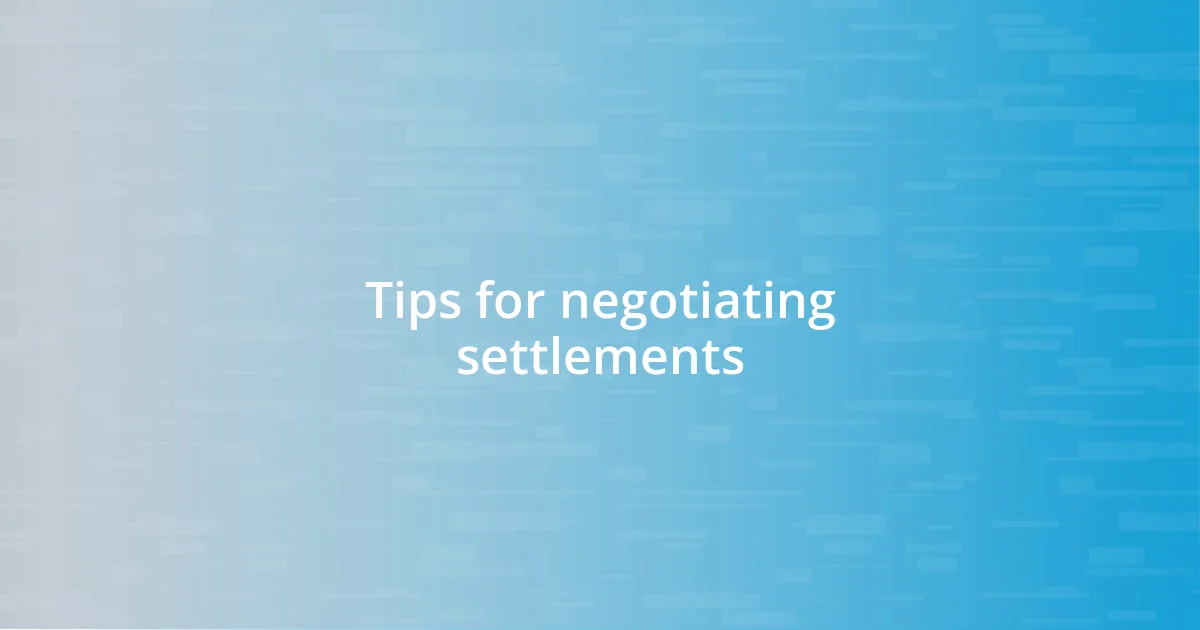
Tips for negotiating settlements
When negotiating settlements, it’s crucial to understand the value of your claim. I found that doing a bit of research on similar cases helped me gauge what a reasonable settlement might look like. Have you ever felt uncertain about what you deserve? Knowing the typical range for similar claims can give you confidence and support your negotiation stance.
Be prepared for counteroffers, too. In my experience, the first offer was always lower than expected. I vividly recall my initial shock when I received their first settlement proposal. It felt temporary, almost dismissive. I realized that responding with a well-reasoned counteroffer, backed by my research and documentation, was essential in making my case stronger. Remember, staying calm and level-headed during these discussions can make a significant impact.
Another invaluable lesson was to make your demands clear. I distinctly remember drafting a detailed letter outlining my reasoning, backed by evidence of my expenses and losses. It was like presenting my case in a structured manner. This approach not only brought clarity to the insurance adjuster but also helped me articulate my needs more effectively. Have you ever felt empowered by simply laying out your thoughts? Clear communication can truly be a game changer in negotiations.

